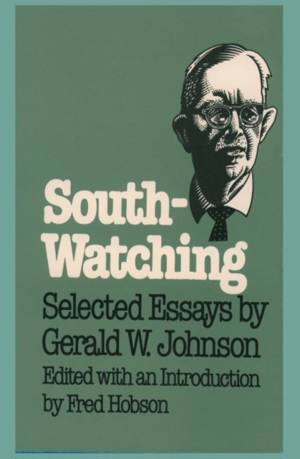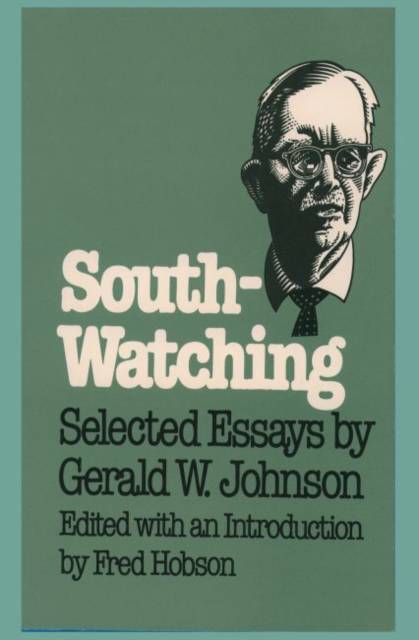
Bedankt voor het vertrouwen het afgelopen jaar! Om jou te bedanken bieden we GRATIS verzending (in België) aan op alles gedurende de hele maand januari.
- Afhalen na 1 uur in een winkel met voorraad
- In januari gratis thuislevering in België
- Ruim aanbod met 7 miljoen producten
Bedankt voor het vertrouwen het afgelopen jaar! Om jou te bedanken bieden we GRATIS verzending (in België) aan op alles gedurende de hele maand januari.
- Afhalen na 1 uur in een winkel met voorraad
- In januari gratis thuislevering in België
- Ruim aanbod met 7 miljoen producten
Zoeken
Omschrijving
Gerald W. Johnson of North Carolina and Baltimore was one of the most prominent American journalists of the twentieth century and one of the outstanding essayists of any age. The author of some three dozen books of history, biography, and commentary on American politics and culture, he was an editorial writer for the Baltimore Sunpapers from 1926 to 1943, a contributing editor of the New Republic from 1954 until his death in 1980, and an advocate of liberal causes for half a century. Johnson was, as Adlai Stevenson said, "the conscience of America."
Before Johnson examined the health of America, however, he examined the health of the South -- and generally, in the 1920s, he found it poor. The revival of the Ku Klux Klan, the Scopes trial, the anti-Catholicism sparked by Al Smith's presidential candidacy, and the labor violence of 1929 made the South the nation's number one news item, reinforcing the national image of a Savage South.
In South-Watching, Fred Hobson contends that Johnson's most important accomplishment was his role as brilliant critic and interpreter of Southern life during this crucial stage in the making of a modern Southern mind. This volume is the first collection of Johnson's essays about the South, and Hobson's perceptive introduction is the first biographical treatment of a man whose vision shaped the destiny of his native region.
Originally published in 1983.
A UNC Press Enduring Edition -- UNC Press Enduring Editions use the latest in digital technology to make available again books from our distinguished backlist that were previously out of print. These editions are published unaltered from the original, and are presented in affordable paperback formats, bringing readers both historical and cultural value.
Before Johnson examined the health of America, however, he examined the health of the South -- and generally, in the 1920s, he found it poor. The revival of the Ku Klux Klan, the Scopes trial, the anti-Catholicism sparked by Al Smith's presidential candidacy, and the labor violence of 1929 made the South the nation's number one news item, reinforcing the national image of a Savage South.
In South-Watching, Fred Hobson contends that Johnson's most important accomplishment was his role as brilliant critic and interpreter of Southern life during this crucial stage in the making of a modern Southern mind. This volume is the first collection of Johnson's essays about the South, and Hobson's perceptive introduction is the first biographical treatment of a man whose vision shaped the destiny of his native region.
Originally published in 1983.
A UNC Press Enduring Edition -- UNC Press Enduring Editions use the latest in digital technology to make available again books from our distinguished backlist that were previously out of print. These editions are published unaltered from the original, and are presented in affordable paperback formats, bringing readers both historical and cultural value.
Specificaties
Betrokkenen
- Auteur(s):
- Uitgeverij:
Inhoud
- Aantal bladzijden:
- 207
- Taal:
- Engels
- Reeks:
Eigenschappen
- Productcode (EAN):
- 9780807840948
- Verschijningsdatum:
- 1/01/1983
- Uitvoering:
- Paperback
- Formaat:
- Trade paperback (VS)
- Afmetingen:
- 155 mm x 230 mm
- Gewicht:
- 367 g

Alleen bij Standaard Boekhandel
+ 167 punten op je klantenkaart van Standaard Boekhandel
Beoordelingen
We publiceren alleen reviews die voldoen aan de voorwaarden voor reviews. Bekijk onze voorwaarden voor reviews.









